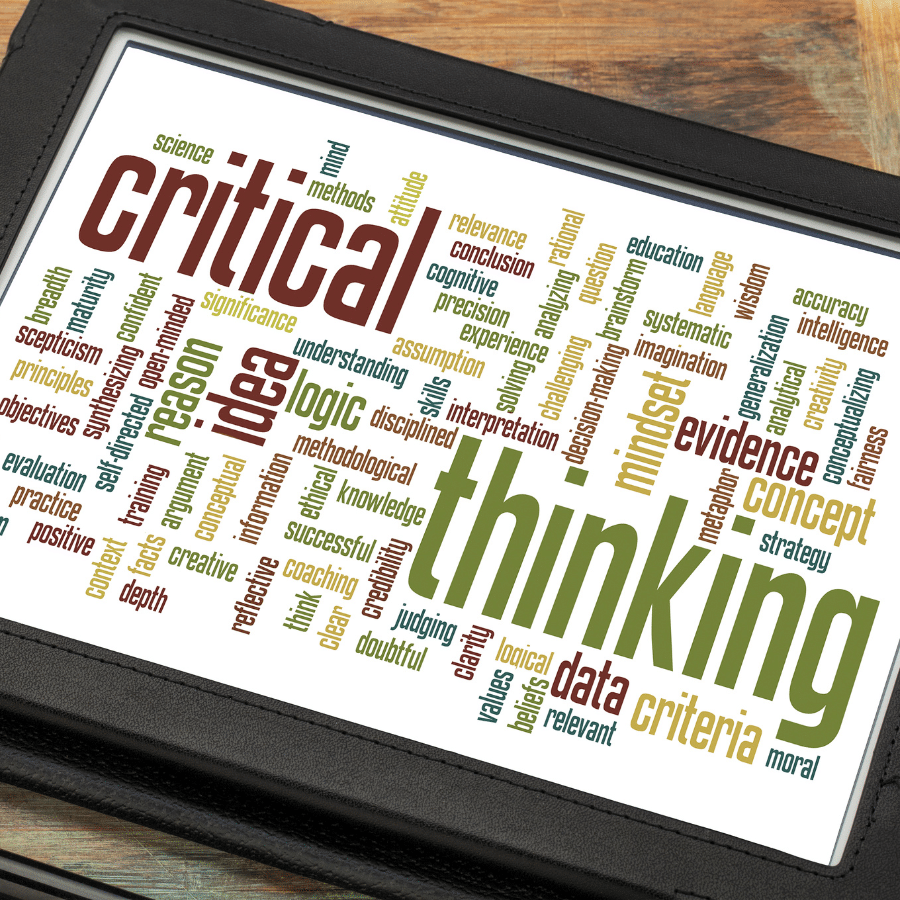Introduction
If you’re going to take a test on critical thinking, it’s important to make sure that you do everything possible to improve your chances of passing. While most people are aware of the importance of studying, few realize that the way they go about studying matters just as much as how much time they put into it. Here are some techniques for preparing for an exam that can help boost your chances of success:Prepare for the exam at least a few weeks in advance.
- Do your homework. If you are not familiar with the material, begin studying for the exam as soon as possible.
- Take notes in class and review them afterward to reinforce your understanding of the subject matter.
- Study with a friend or classmate who is also taking the course, so that each of you can help each other understand difficult concepts and ideas.
- Practice writing answers to test questions on sample exams provided by your instructor–and check them over carefully before turning them in!
Read the question and answer choices carefully.
Reading the question and answer choices carefully is an essential part of preparing for any exam. When you read a question, understand what it’s asking you to do. Then, when you’re ready to choose an answer, make sure that your choice matches up with what the question asked for. For example: Question: If x = 2y + 3z and y = 4z + 5x, then what is (x – 2)(y – 4)?Take notes on the test booklet.
- Use a highlighter to mark important information.
- Write down any notes on a separate sheet of paper that you can then file or keep with your exam booklets as a reference. You will not be allowed to write in the test booklet, so this is an effective way of keeping track of all the things that were covered during an exam without taking up space in your booklets.
Answer questions as soon as you can.
Answer questions as soon as you can. This will help you focus on the question at hand and avoid rushing through the rest of the exam. It also helps to keep track of which questions have been answered, so that if there’s time left at the end of an exam or test, you don’t have to go back through all of them again just because they were easy and didn’t require much thought.Be flexible about how you write your answers.
- Use different colored pens and highlighters.
- Use a different color for each section of the test.
- Switch up your writing utensils, too! If you usually write with pen, try pencil or crayon instead; if you use pencils, try using markers or paintbrushes instead; if you prefer crayons over pens (or vice versa), use both in combination on one page.
It is possible to improve your critical thinking skills by preparing for an exam the right way
It is possible to improve your critical thinking skills by preparing for an exam the right way. This can be done by following the steps below:- Preparation: You should spend time preparing for an exam by reviewing the material, taking notes and asking questions about anything that you do not understand. If possible, try to get a copy of any previous exams that were given in this subject area so you know what types of questions are likely to appear on it.
- During Exam: When taking an exam, remember that time is limited so only answer those questions which are necessary in order for you to demonstrate mastery over specific concepts or principles that have been taught during class time (or covered in some other way). Do not waste time reading every single word on each page because there may be no need for it! Also remember that some answers may require more than one sentence – so don’t hesitate using more than five words if needed! Finally–make sure all answers are properly spelled out before turning them into your professor/ TA; otherwise they might not count toward total points earned!









